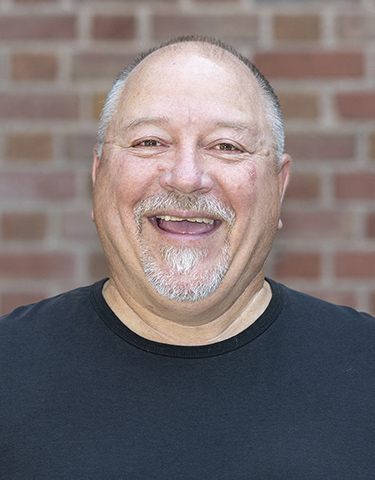 If you pass Jay Sierszyn in the hallway and ask him how he's doing, he will be the first to warn you, "I'm going to answer with a story." The WLC theatre professor of 21 years is set retire at the end of the semester. Being a storyteller seems to be at the heart of Sierszyn's winding path into the theatre vocation: "When I'm asked what I do, I say that I 'tell stories.' In many ways, that encompasses what I do in theatre."
If you pass Jay Sierszyn in the hallway and ask him how he's doing, he will be the first to warn you, "I'm going to answer with a story." The WLC theatre professor of 21 years is set retire at the end of the semester. Being a storyteller seems to be at the heart of Sierszyn's winding path into the theatre vocation: "When I'm asked what I do, I say that I 'tell stories.' In many ways, that encompasses what I do in theatre."
It took a series of educational, career, and life experiences for Sierszyn to eventually realize his calling to theatre education. Perhaps the earliest nudge came from a most unlikely place - a funeral home. "My aunt and uncle owned a funeral home, and we would have big family Christmases in the reception hall. It was a perfect play area as a kid! My cousins and I would do 'shows' up front where the casket would normally be on display."
Throughout high school and somewhat into college, Sierszyn thought he was going to end up being a band director. He was heavily involved in instrumental music, and could play percussion, baritone saxophone, and clarinet in addition to his main instrument, the alto saxophone. He credits his high school music instructor, Dave Krubsack, with being the one who opened his eyes to becoming an educator: "Still to this day, I think he had the most influence on my going into the vocation of teaching. It was just who he was and what he did."
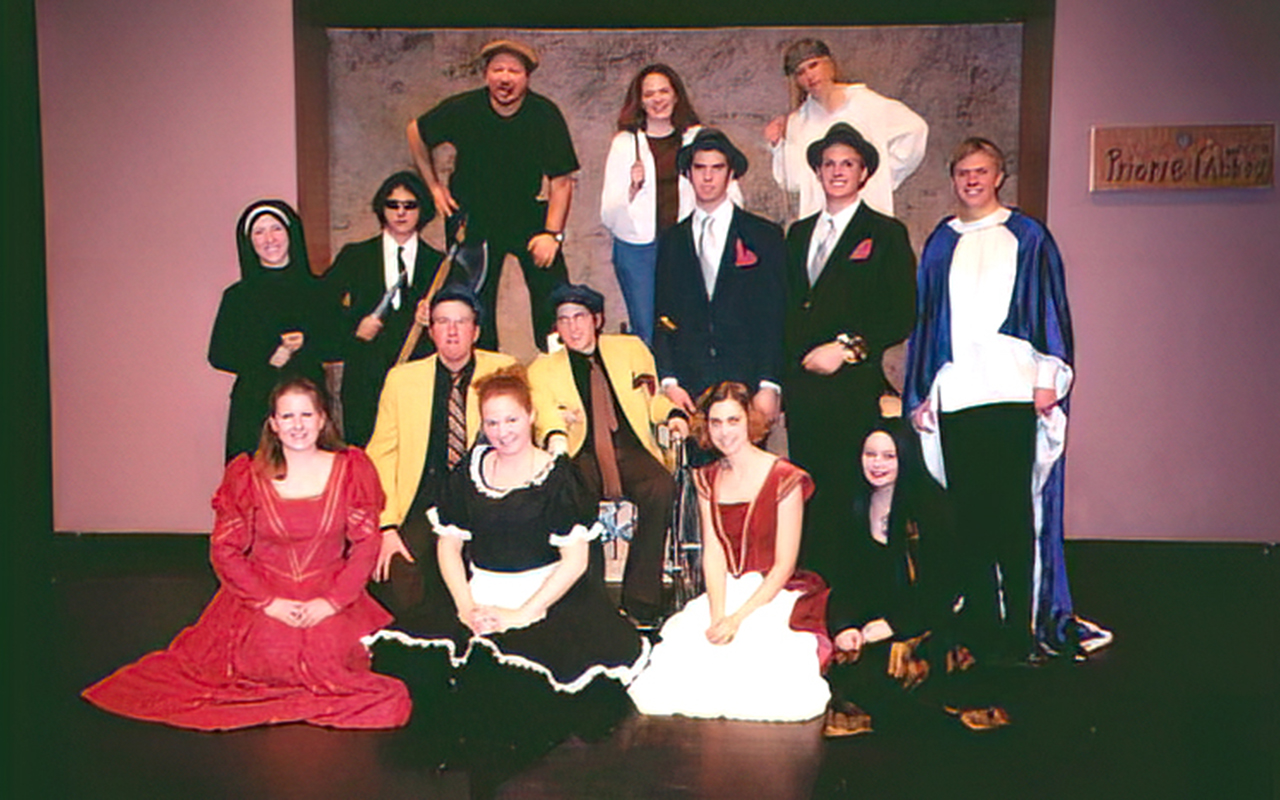
Between Sierszyn's freshman and sophomore years of college, he joined a traveling Christian pop music-theatre group called Joy Incorporated. The troupe toured the country in a converted school bus, performing concerts and children's shows at churches and schools along the way. "That was a time of really solidifying my faith - we would do a daily Bible study together and it was, in a sense, a very public ministry." The experience also guided him further along his teaching journey: "It made much more clear the vocational callings I felt in both music and theatre, as well as to teach."
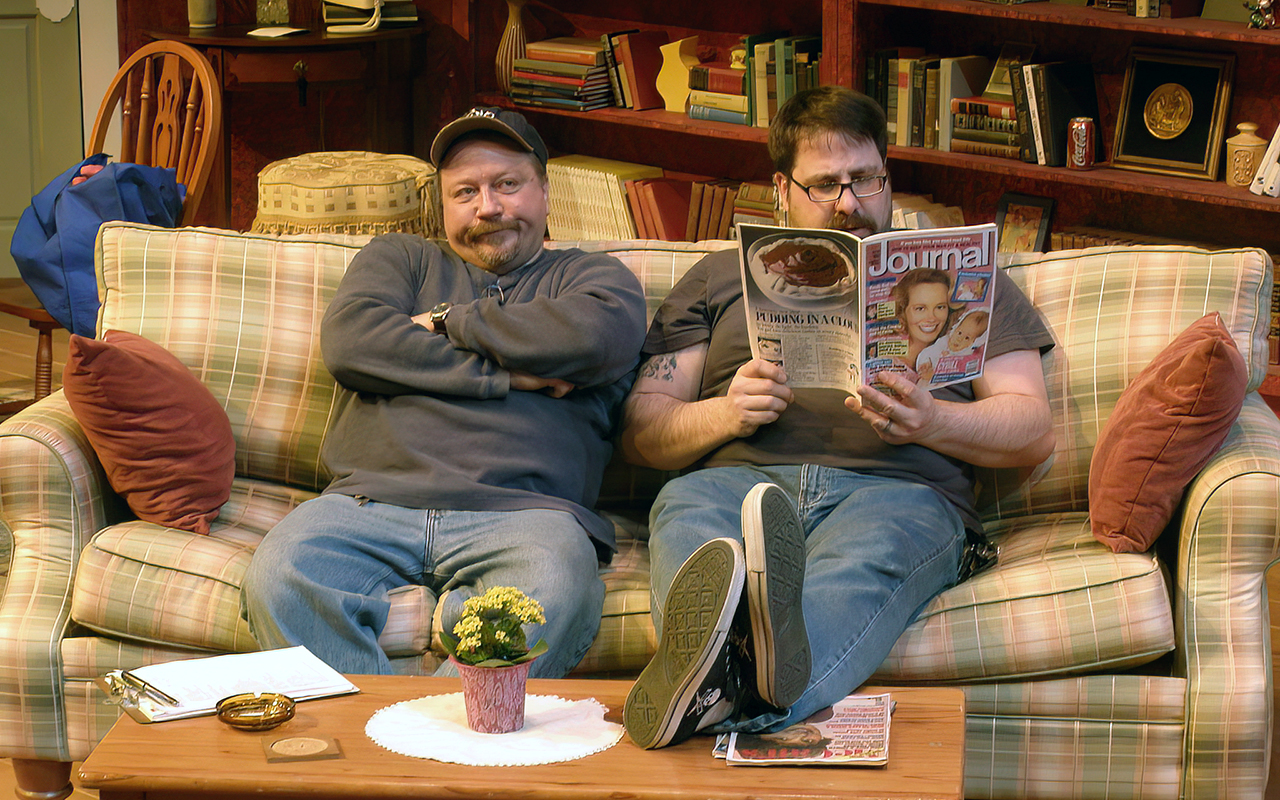
The dramatic shift toward a career in theatre education, however, would soon come as a sort of "aha" moment. In the midst of pursuing a music education degree at Concordia Teachers College (now Concordia University Chicago), he encountered a formidable roadblock, otherwise known to Sierszyn as Music Theory II. "The Lord made me realize how music should maybe just be a minor. He showed me that I just wasn't gifted that way."
Upon graduating from college, Sierszyn began teaching English at an all-boys Catholic high school in Chicago. In addition to his teaching duties, he coached wrestling, started a speech program, and ran the after-school drama club. "I taught there for four years, and I kind of came out thinking, 'Sure I developed their speech program (which they didn't previously have), but what I really wanted to do happened at 2:30 in the afternoon.' "
Realizing that he was most "in his element" while leading the drama club, Sierszyn took the next step in cultivating his passion by enrolling in graduate school at Northern Illinois University. Sierszyn then began applying to college teaching positions. "I ended up with 120-some rejection letters or letters that said 'Sorry, we don't have an opening.' " Now armed with a Master of Arts in Theatre, Sierszyn went back to teaching English and speech at a Lutheran high school while awaiting his golden opportunity at a college.
Persistence finally paid off when Sierszyn received an offer to begin the theatre program at Waldorf College in Forest City, Iowa, where he served on the faculty for 13 years. He continued to nurture his gifts in theatre and teaching by completing Ph.D. coursework at the University of Missouri, and by getting involved in professional groups such as the Association for Theatre in Higher Education (ATHE). In time, Sierszyn became ready to author the next "act" of his career.
He recalled meeting a certain theatre professor from Wisconsin Lutheran College at an ATHE convention in New York City a few years earlier. "I was in a liberal arts focus group [at the convention] and this person comes up to me and her name is Jan Nelson and she's from Wisconsin Lutheran College. She asked if I would be interested in coming back to Milwaukee because she just had started the program at WLC, and was looking at developing and expanding the faculty."
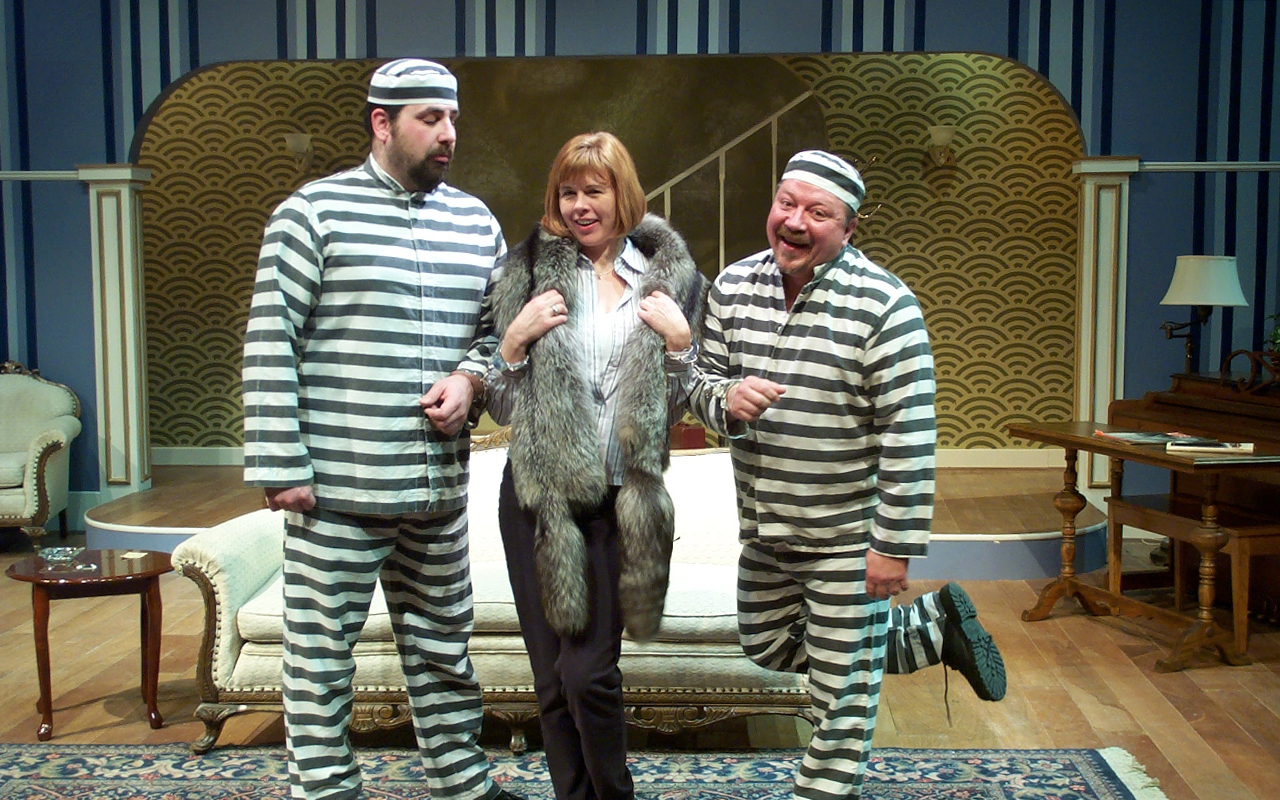
Several years later, and at a career crossroads, Sierszyn remembered the serendipitous meeting, and reached back out to Nelson: "She said, 'You're kidding, we just offered a position to someone who turned it down, and we have an opening starting in the fall!' " After a series of subsequent campus visits and meetings with faculty, students, and administrators, Sierszyn accepted the call to serve at WLC. The change did not happen without some anxiety about facing the unknown, but Sierszyn trusted God to light the way: "And so came fall of 2002, and I remember telling myself to 'be where you are - the Lord is going to call you and has a path for you - but you may only see the first couple steps.' "
Sierszyn's first years in the WLC theatre department were dedicated to teaching set design and lighting. While not the focus of his graduate studies, he was nonetheless skilled in these areas from experiences in college and the classroom. "I felt that, unbeknownst to me at those times, the Lord was preparing me for this moment at WLC."
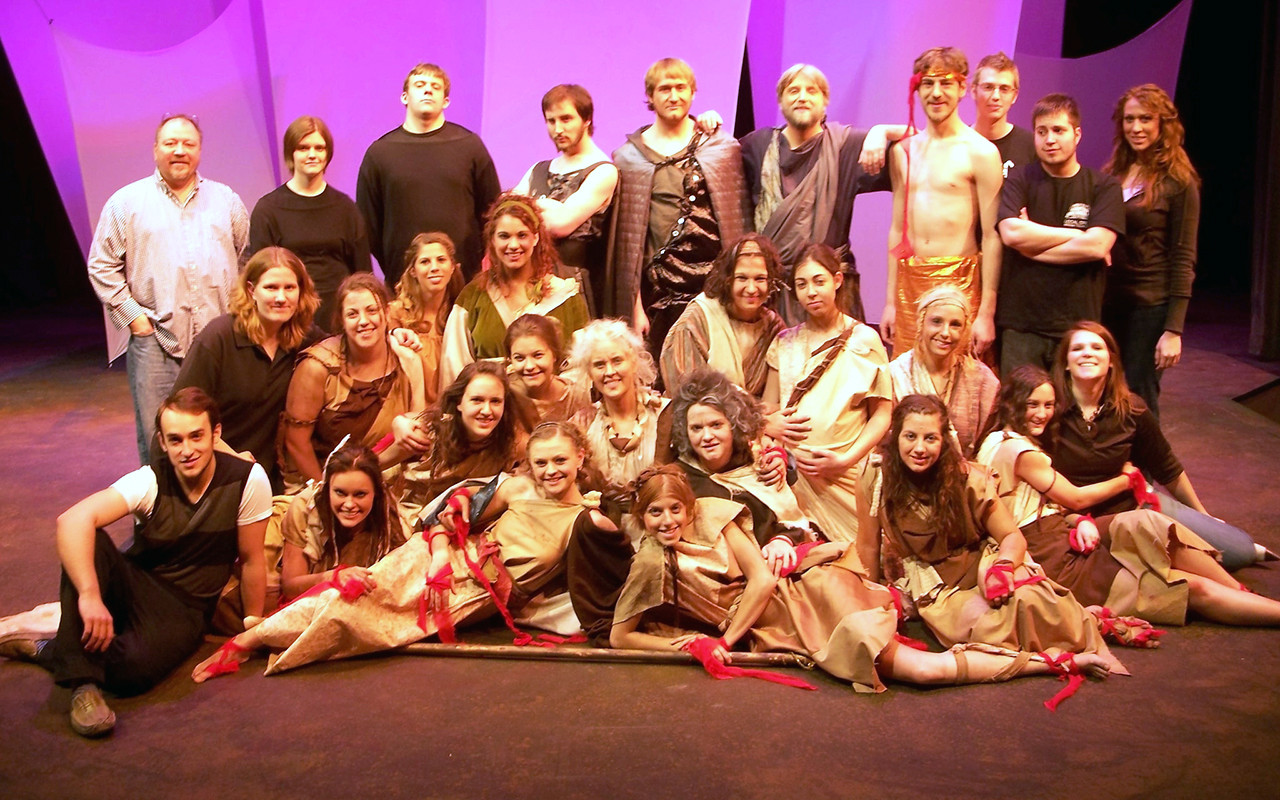
Faculty and program changes through the years gradually led to Sierszyn's role becoming more comprehensive. These expanded opportunities allowed Sierszyn to dive deeper into his vocational calling: "I've never not been a teacher. My mission is the 'teaching aspect' of getting students to see why they do theatre and having them come to an understanding that it's not just about them performing. It's conveying to my students what I have learned and experienced in theatre."
Apropos of his self-description as a storyteller, Sierszyn understands theatre to be the art of telling the human story. "You can't have theatre without the subject matter being human life." He helps students recognize that, when engaging with scripts and shows, characters will reflect real people, warts and all. "Students freak out when I say, 'There's probably not going to be theatre in heaven.' In plays, we are exploring what it means to be human, and that includes our sinful nature."
Sierszyn works with classes to develop an understanding of what it means to be a Christian theatre student - and audience member: "In some ways, every story is a Christian story. If you have a Christian context of what it means to be human - and that's what's going on in a play - we can see the 'why' in characters' actions. We can see how we have these same errors or challenges." He encourages students to analyze the lessons learned from shows and apply them in their devotional lives: "Hopefully, good theatre makes them think, 'How is my life? How am I reflected in this story? How can that strengthen my faith through a process of prayerful consideration and scripture reading?' "
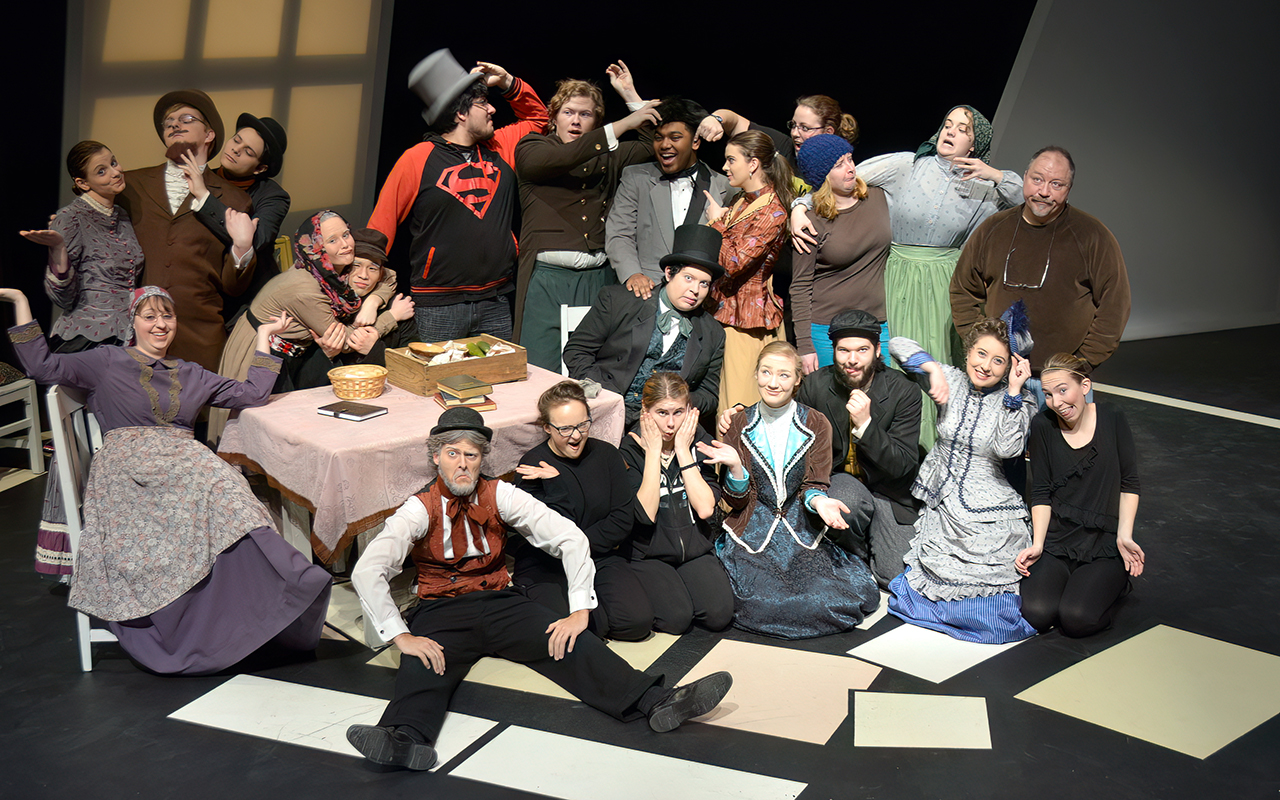
Whether serving as director, designer, or producer, Sierszyn was intricately involved in almost every Raabe Theatre production throughout his 21-year WLC career. To him, a good show is one that connects students and audiences to something known, while at the same time exposing them to the unknown: "If it's too cliche, and there's nothing new and nothing different, then it's a snooze. On the other hand, a story shouldn't be so imbued in a different culture or be told in such a way that people have no idea what's going on. No, we need enough of what we recognize, and yet be told something new."
When pressed for the favorite play from his WLC tenure, Sierszyn answered, wryly: "My favorite show is the next one. I know that's pretty cliche, but I feel I am called to be in the moment." His sentiment is more than just a passing platitude to evade a ponderous question. Rather, Sierszyn's attitude goes back to the understanding of his vocation: "I think that's a very much a theatre thing - to be engaged in the here and now, and to be present on stage and in rehearsals."
Of course, Sierszyn wasn't without a handful of highlights as seen from the director's chair. The seasoned theatre professor remembered fondly Dead Man Walking, which he produced with an "ensemble" - or group-centered - approach. "It was this very loose kind of thing. Most of the characters weren't cast until about eight to ten days before we opened, and it drove the students nuts. I had them bring much of their own "self" to the characters and do research on the subject matter. There were times for sharing thoughts and perspectives - it was a very artsy-fartsy, blended approach." The most poignant moment of the show, however, came at the end with an unscripted addition: "We curtained off the Raabe Theatre and had the audience sit close together in the middle section. When the death-row inmate character was going to his execution, the rest of the cast members sang the hymn What Wondrous Love from behind the curtains. Now, whenever I hear that hymn, I think about how effective that was in the show."
The Tempest was another favorite: "The cast was wonderful and so willing to explore things. We brought back alumni to be in the show and to compose the music." Sierszyn's memories kept on flowing: "How to Succeed in Business was my first big show at WLC. One of the cool things with that was that we had a working elevator door on the set. The un-rehearsed Shakespeares, The Bending of the Bow - the ones I'm thinking of all came out of the "ensemble" experience and were not as scripted. These shows had creativity that came out of being in the moment, which made them totally unique."
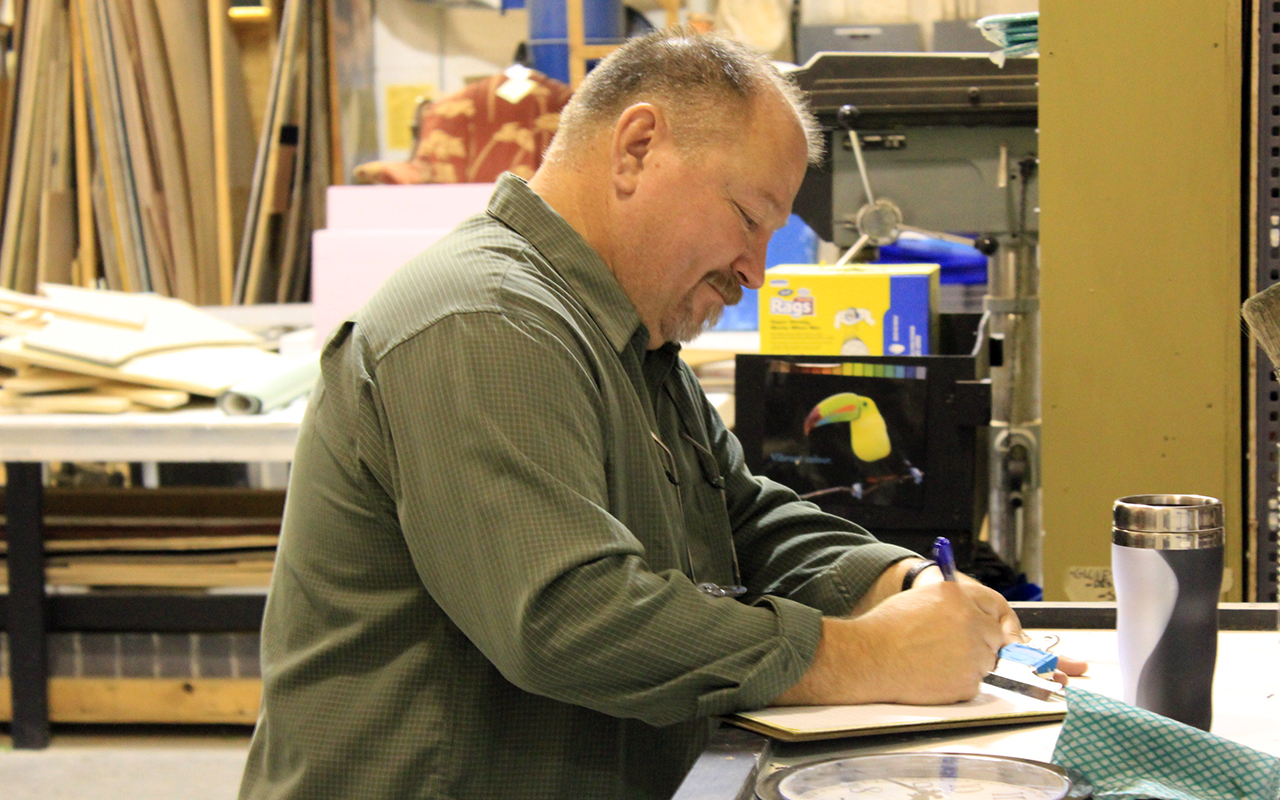
Not all of the memorable moments happened at show time, however. In fact, many of the most meaningful experiences occurred behind the curtain. "Other memories weren't seen by others. All of the backstage and shop work, the laughter from students coming out of rehearsal - I say to myself, 'That's why I like doing this.' "
Sierszyn considers his circuitous career path to be a tremendous blessing. Though a more straightforward trajectory may have been easier at times, the twists and turns have given him untold opportunities to grow and serve. Only now in hindsight can he see how God was using those situations and experiences to equip him to serve others. "We don't always know why the Lord leads us on paths that are disconnected, but then we come back later in life and realize 'Oh, that's why that happened!' "
Sierszyn has endeavored to create an environment in which students will relish these types of vocational building blocks. He realizes that, just as in his own experience, many will be called to serve in ways they don't yet know. A number of WLC theatre students have, of course, gone on to do professional theatre as actors, writers, technicians, and managers. Many more, however, have found themselves serving their neighbor off the stage. "The way we do theatre very much fits the mission of WLC. We want to just as much celebrate someone whose vocational calling doesn't end up being in theatre as we do our alumni in the field. There is so much more than just your major. Does that connect with me? Yeah! I was never a theatre-only guy."
Sierszyn's WLC swan song, Quilters, will premier in April 2023. Set in Pioneer America, the musical uses quilt patterns and patches to serve as a representation for a network of intricate stories: "In Quilters, we hear many of these little stories, or 'patches,' and just like a quilt, they become part of a larger thing that is passed on from generation to generation." The great storyteller could not have picked a more perfect or poignant show at which to take his final bow.
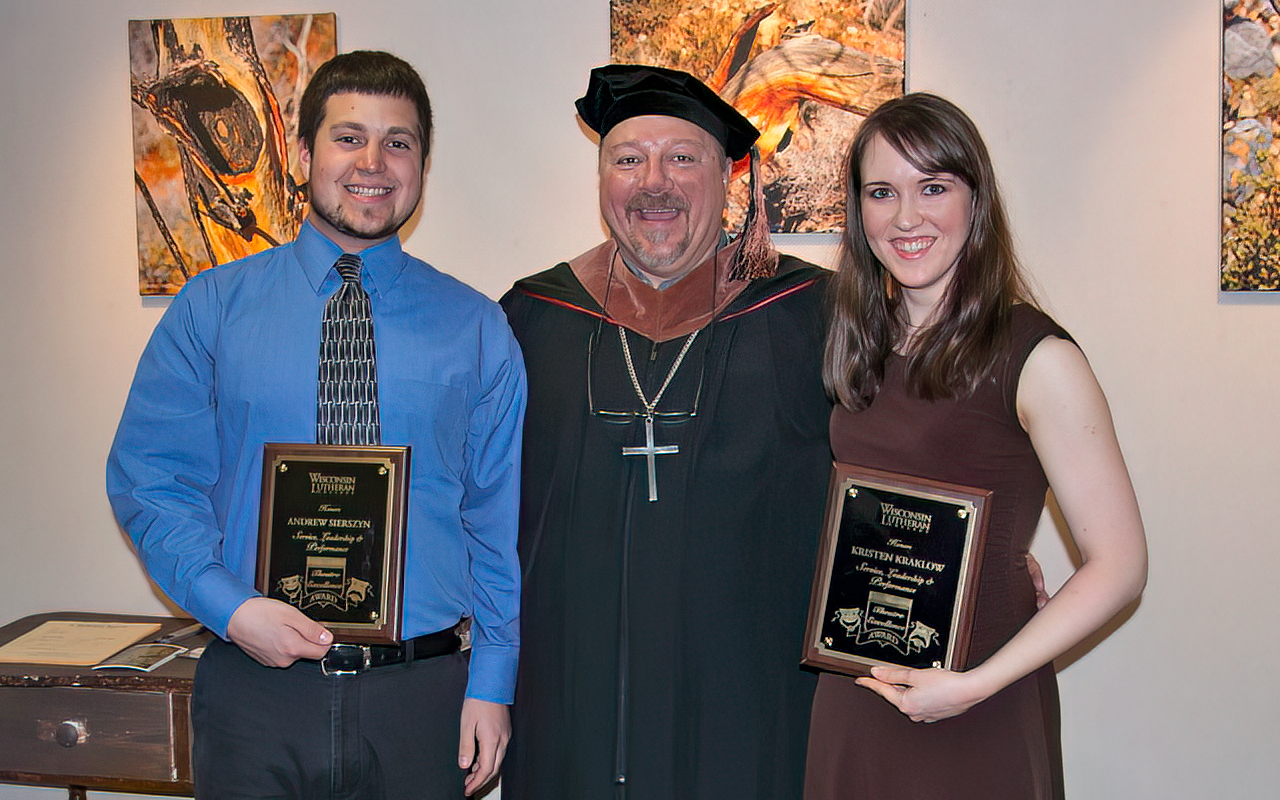

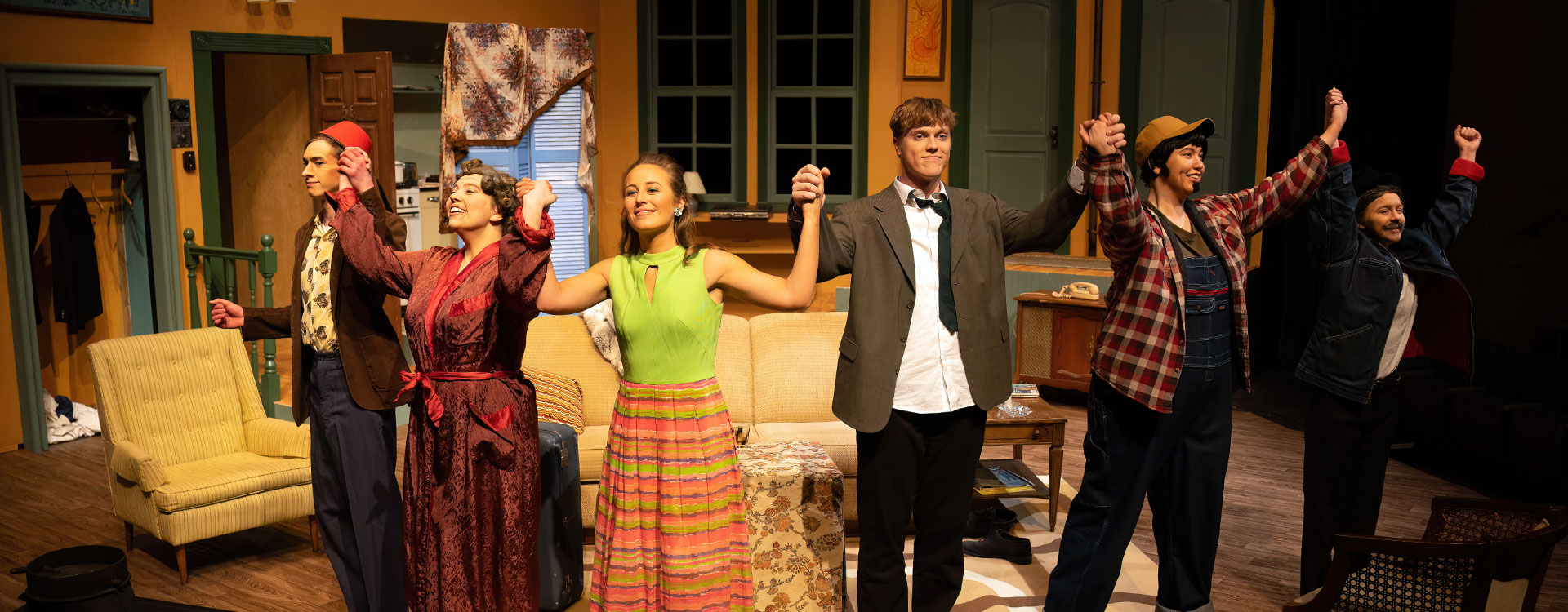
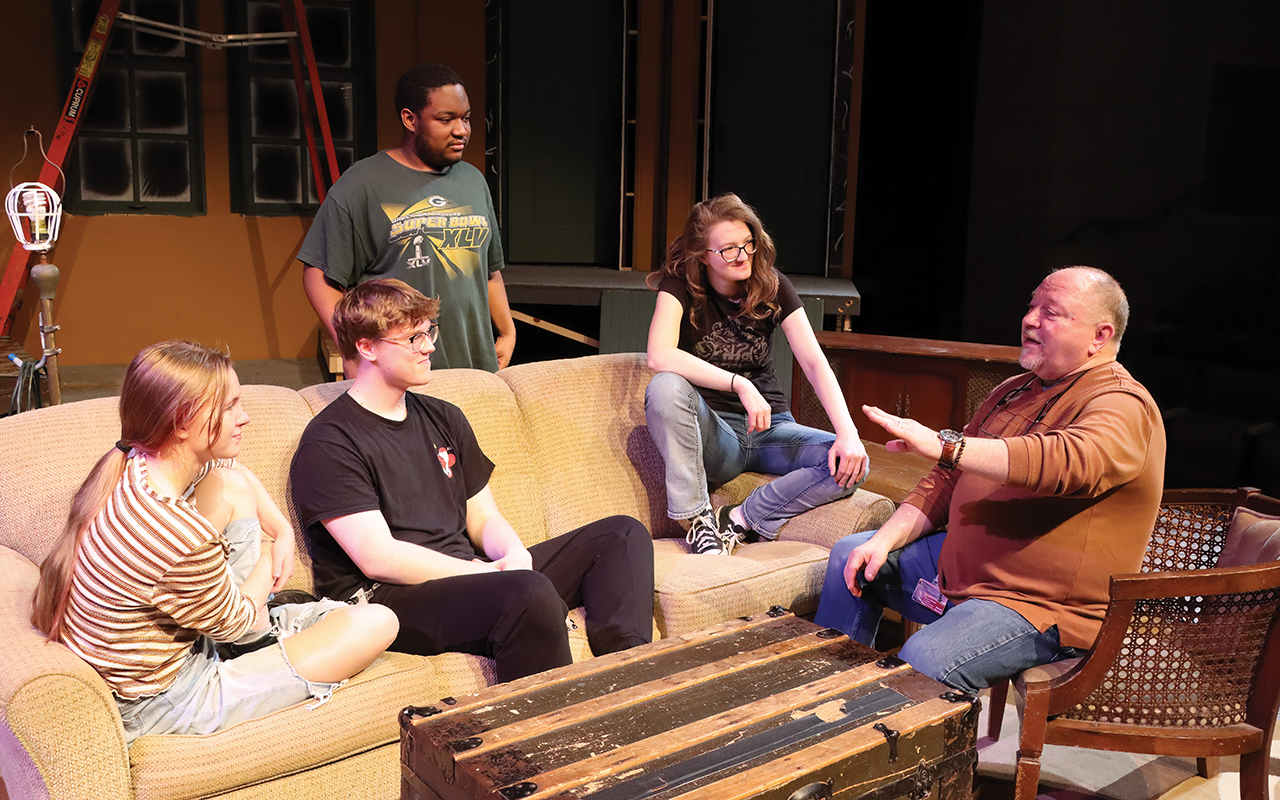
 If you pass Jay Sierszyn in the hallway and ask him how he's doing, he will be the first to warn you, "I'm going to answer with a story." The WLC theatre professor of 21 years is set retire at the end of the semester. Being a storyteller seems to be at the heart of Sierszyn's winding path into the theatre vocation: "When I'm asked what I do, I say that I 'tell stories.' In many ways, that encompasses what I do in theatre."
If you pass Jay Sierszyn in the hallway and ask him how he's doing, he will be the first to warn you, "I'm going to answer with a story." The WLC theatre professor of 21 years is set retire at the end of the semester. Being a storyteller seems to be at the heart of Sierszyn's winding path into the theatre vocation: "When I'm asked what I do, I say that I 'tell stories.' In many ways, that encompasses what I do in theatre."





